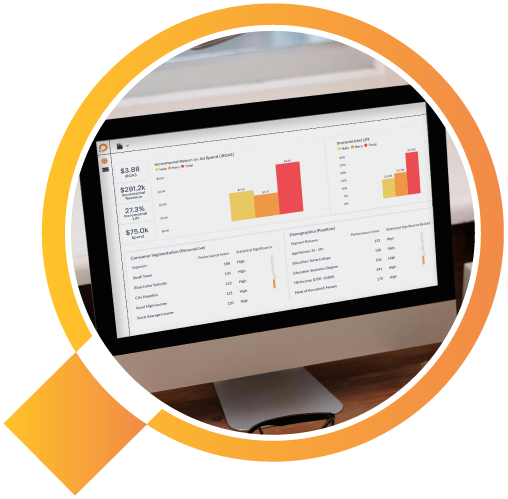
Three Retail Titans Walk into a Bar
The Challenge of Incremental Measurement
 By Brian Pozesky
By Brian PozeskyJohn Wanamaker, Sam Walton and Jeff Bezos walk into a bar.
Wanamaker wondered where his other half had gone, which he had been worrying about long before his overused quote, “Half of the money I spend on advertising is wasted. The trouble is I don’t know which half,” became legend. Bezos didn’t really care—he already knew everything about everyone anyway. And Walton? He was politely explaining to the bartender that he had a store within 10 miles of every U.S. consumer, complete with smiling greeters and low prices—so really, what was there to worry about?
They pulled up stools and ordered drinks. Wanamaker kept going on about his missing half.
Bezos gave a knowing smile. “That’s cute. These days, we test everything. I know which campaign made someone blink twice before they scrolled past.”
Walton, never one to mince words, chimed in: “Guys, just keep the prices low.”
But Walton had to admit—he did want to know what actually drove people into the store. Bezos had data coming out of his ears, but even he was drowning in dashboards. And Wanamaker? He was still in the corner, flipping coins and arguing with himself about which half to blame.

The bar got quieter. The drinks got stronger. The three retail titans sat there, commiserating—caught in the tension between intuition and insight, data and noise.
Then the bartender (who bought the bar when she sold her Shopify business last year) leaned in, towel over her shoulder, and said:
“Guys, it’s called incremental measurement.”
Incremental measurement is both exceedingly obvious and incredibly difficult to do right.
It’s a crucial concept for understanding marketing effectiveness, but over the past 25+ years of digital marketing, it’s been buried under an overwhelming amount of noise.
Digital marketing was supposed to take the guesswork out of advertising—everything could be tracked, every consumer’s behavior could be analyzed. But as the medium exploded, so did the volume of data. Thousands of ad-tech vendors entered the scene, each offering their own tracking and attribution schemes, none of which could be easily compared, validated, or trusted.
Over time, the market began to consolidate. Many vendors were either absorbed by larger players or run out of business, leaving the power in the hands of a few dominant, fragmented entities.
But it’s not just media providers who control the data today—retail giants like Amazon and Walmart now wield enormous influence. These retailers, along with tech giants including Meta and Google, hold vast pools of first-party data, and their influence over consumer behavior is unparalleled.
With so many competing forces controlling separate pieces of data, tracking and separating the signal from the noise has only become more challenging. Privacy regulations like GDPR and CCPA have introduced additional complexity, and the proliferation of devices further complicates things by making it even harder to track consumers across platforms seamlessly.

In this chaotic environment, incremental measurement emerges as the solution to cut through the noise. Instead of trying to track every interaction or relying on attribution models that often tell you everything and nothing at the same time, incremental measurement focuses on one crucial question: What would have happened without your campaign? By isolating the true impact of your marketing efforts, it helps you identify valuable insights amid the overwhelming noise.
In a world where speed, precision, and adaptability define success, incremental measurement has evolved from a static evaluation tool into a real-time engine for smarter decision-making. Thanks to AI and machine learning, we’re no longer guessing about the impact—we’re seeing it unfold, understanding it instantly, and acting on it with confidence. The future of measurement isn’t just about knowing what worked; it’s about knowing what’s working right now—and being ready to evolve with it.


